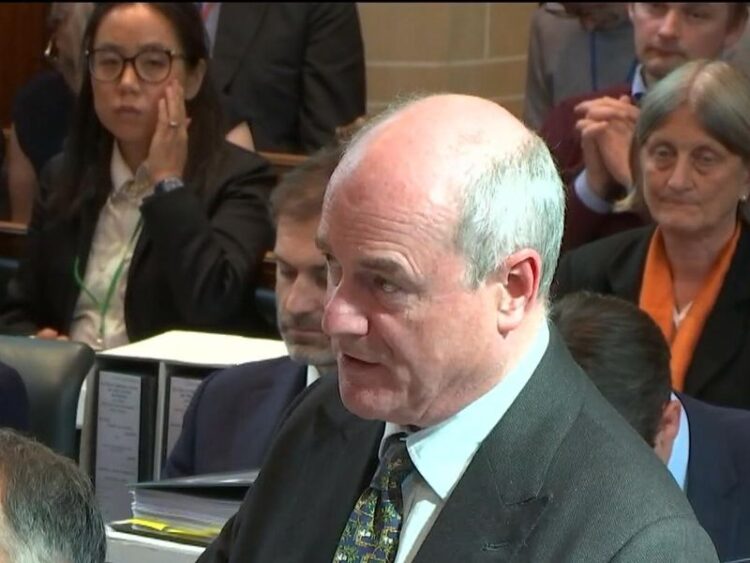By Ben Kerrigan-
Tory government lawyers are basing their argument on the European convention on human rights to avoid unredacted files to the Covid inquiry.
At high court challenge to the demand by the inquiry chair, Lady Heather Hallett, for documents that include the entire WhatsApp history of Boris Johnson and a former No 10 aide, Henry Cook, James Eadie KC argued it would “breach article 8 rights”.
The government are seeking to block the Covid inquiry chair from obtaining details contained in the WhatsApp history, but former prime minister, Boris Johnson is in support of them being handed in.
In written arguments, the government’s advocate said: “Article 8 … prohibits unnecessary or disproportionate intrusion into an individual’s private and family life. The protection of personal data is of fundamental importance to the right under article 8 … In the context of judicial proceedings, the European court of human rights has found violations of article 8 where a domestic court has included sensitive personal information within its judgment which was not ‘rendered strictly necessary by the specific features of the proceedings and by the facts of the case’.”
In written arguments, Sir James Raymond Eadie (pictured) who is asking Lord Justice Dingemans and Mr Justice Garnham to quash Hallett’s demand, also argued that forcing the government to hand over all of the files requested would breach GDPR provisions, which concern data protection.
He described the chair’s assertion that all documents covered by the notice were “potentially relevant” as “an untenable, irrational conclusion”.
Eadie said: “The Cabinet Office has never disputed that WhatsApp messages containing, or relating to, key pandemic decision-making are relevant and disclosable. Those are precisely the type of messages disclosed and not redacted.
“It is messages which do not concern pandemic decisions which are irrelevant, and yet caught by the over-broad notice. Compelling the provision of every WhatsApp over a two-year period, without any subject matter qualification, is absurd.”
Hugo Keith KC, representing Hallett, said in written submissions that the Cabinet Office’s interpretation of her powers was “flawed and unworkable” and “undermines the chair’s ability to fulfil her statutory terms of reference, both fully to investigate the facts and also to make effective recommendations for the future.”
He said: “It effectively leaves the holder of the documents, and not the chair, patrolling the boundary of what is relevant to the chair’s investigation. It would have serious implications not only for the ongoing work of this inquiry but for the conduct and operation of all current and future statutory inquiries.”
“Mr Johnson has no objection to the inquiry inspecting the materials unredacted, subject to appropriate security and confidentiality arrangements having been put in place, given the personal and sensitive nature of some of the material.”
The judges will give their ruling at a later date but said they would attempt to reach a decision “as quickly as possible”.
The ruling will be one of the most anticipated in recent times.




